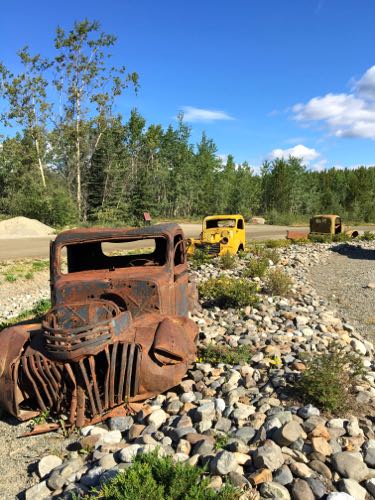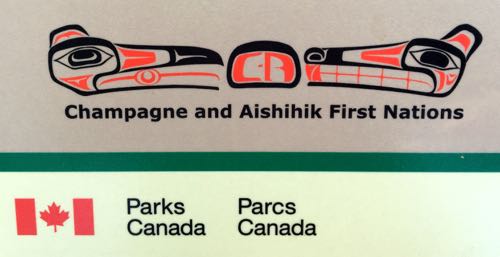The First People
The First People that traditionally inhabited Kluane had three main lineages; Champagne, Aishihik and Southern Totchone. Due to the harsh climate, The People lived in small groups, experts at coaxing life from the plants and animals that shared their land. Trapping, hunting, harvesting and a deep knowledge of the boreal forest kept the people alive and connected to the land.
 First Nation Reliance on Animals
First Nation Reliance on Animals
War and Oil Decimate a Culture
In 1942, the western world, engulfed in war, expanded their war efforts into the Yukon to build an oil pipeline to transport oil down to the lower 48. The building of the Canol road brought 30,000 people into the Territory. This invasion quickly began consuming the natural resources of this vast land.
 Pursuit of Oil
Pursuit of Oil
Game Preserve
As early as 1943, the Canadian government recognized how this invasion was depleting the moose, bear, and other wild game. To stop this rapid depletion, the government decreed the Kluane region, a wildlife game reserve, where no hunting or trapping would be allowed. The First People were also subjected to this ban. Severed from their land, surrounded by foreign ways with their children snatched away to be "civilized" in residential schools, the First Nation People lost their way.
In 1972, the Kluane became a National Park.
In 1973, the Canadian government began to recognize First Nation's rights and wrote the Land Claim Agreement, but did not sign the agreement with the FIrst Nation People until 1993.
Finally in 2003, the harvesting and decision making powers were returned to the First Nation People and a true cooperation began with all three First Nation lineages, and the Canadian Government.
 FIrst Nation and Canadian Government Cooperation
FIrst Nation and Canadian Government Cooperation
In 2004, a movement called " Healing Broken Connections" was begun to help the People regain their lost traditions and once again coax life from the land. "Culture Camps" are held each year to teach the young how to hunt, tan hides and to learn the powerful herbal medicines that heal and sustain life.


Comments